Mental Disorders: Symptoms List, Causes, Diagnosis, Examples, Treatments
Mental disorders are health conditions that involve changes in emotions, thoughts, or behavior (or a combination of these). Mental disorders can cause a person’s difficulty and/or have problems in social activities, work, or family.
Many people who have mental disorders do not want to talk about their illness, even though mental disorders are not embarrassing. Mental disorders are medical problems, such as heart disease or diabetes. Mental disorders can be treated. Most individuals with mental disorders can continue to work in their daily lives.
Mental disorders can affect anyone and can affect anyone regardless of age, gender, geography, income, social status, race/ethnicity, religion/spirituality, sexual orientation, background, or other aspects of cultural identity. Mental disorders can occur at any age. Three out of four cases of all mental disorders, starting at the age of 24 years.
Mental disorders take many forms. Some are mild and only interfere with certain things in daily life, such as phobias (abnormal fears). But there are also mental disorders that are so severe that a person may need to be hospitalized.
Let’s see the further discussion of mental disorders, symptoms, causes, and treatments that can be given to patients below.
Symptoms of Mental Disorders
Symptoms and signs of mental disorders depend on the type of disorder experienced. Patients can experience interference with emotions, thought patterns, and behavior. Some examples of symptoms of mental disorders are:
- Delusions, namely believing something that is not real or not in accordance with actual facts.
- Hallucinations, which are sensations when someone sees, hears or feels something that is not real.
- Changing moods in certain periods.
- Feelings of sadness that last for weeks, even months.
- Feelings of anxiety and fear are excessive and continuous until it disrupts daily activities.
- Eating disorders such as feeling afraid of gaining weight, tend to vomit food or eat large amounts.
- Changes in sleep patterns, such as easy sleepiness and sleep, sleeplessness, and breathing problems, and restless legs during sleep.
- Addicted to nicotine and alcohol, and drug abuse.
- Excessive temper tantrums and acts of violence.
- Unusual behavior, such as unclear screaming, talking and laughing to yourself, and leaving the house naked.
In addition to psychological-related symptoms, people with mental disorders can also experience physical symptoms, such as headaches, backaches, and heartburn.
Causes of Mental Disorders
Mental disorders are not yet known exactly what causes it. However, this condition is known to be related to biological and psychological factors, as will be described below:
Biological factors (or called organic mental disorders)
- Disorders of nerve cell function in the brain.
- Infection, for example, due to Streptococcus bacteria.
- Congenital abnormalities or injury to the brain.
- Brain damage due to collision or accident.
- Lack of oxygen in the baby’s brain during labor.
- Having parents or families with mental disorders.
- Long-term drug abuse.
- Nutritional deficiencies.
Psychological factors
- Traumatic events, such as violence and sexual harassment.
- Loss of parents or wasted in childhood.
- Less able to get along with other people.
- Divorced or left dead by a partner.
- Feelings of inferiority, inadequacy, anger, or loneliness.
Diagnosis of Mental Disorders
A diagnosis of mental disorders can be done by professionals such as psychiatrists, psychologists, or other mental health experts. To determine the type of mental disorder suffered by the patient, the psychiatrist will conduct a psychiatric medical examination by interviewing the patient or his family. Questions to be asked include:
- Symptoms experienced, including since when the symptoms appear and their impact on daily activities.
- A history of mental illness in patients and their families.
- Events experienced by patients in the past that trigger trauma.
- Medications and supplements that have been or are being consumed.
To rule out the possibility of other diseases, the doctor will conduct a physical examination and supporting examination. One of the investigations conducted is a blood test.
Through blood tests, doctors can find out whether symptoms in patients are caused by thyroid disorders, alcoholism, or drug abuse.
Examples of Mental Disorders
After conducting a number of examinations, the doctor can determine the type of mental disorder experienced by the patient. Of the many types of mental disorders, some of the most common are:
1. Anxiety Disorder (Anxiety Disorder)
Someone with this problem experiences anxiety disorders when responding to an object or situation. Usually, sufferers will experience intense fear accompanied by changes in physical signs, such as an increasingly rapid heartbeat, sweating, feeling dizzy, and difficulty concentrating or sleeping.
Anxiety when in a public place, panic, and phobia about something, also included in anxiety disorders. People with this problem live with feelings of anxiety, fear, and excessive worry.
2. Mood Disorder
Mood disorder is also called an affective disorder that makes the sufferer feel continuous sadness or excessive feelings of happiness. Emotional displacement or fluctuation from feelings of happiness to extreme sadness also includes this disorder, in which we are familiar with Bipolar Disorder. Some other examples of disorders such as long-term depression, seasonal affective disorders, mood swings, and irritability that occur during the premenstrual phase, and depression due to physical illness.
3. Psychotic Disorders
Psychotic disorders including severe mental disorders that cause abnormal thoughts and perceptions, such as schizophrenia. The most common symptoms of this disorder are hallucinations (hearing, seeing, or feeling something that does not exist), and delusions (believing things that actually didn’t happen).
4. Eating Disorder
Eating disorder is a serious and often fatal disease due to severe disruption in a person’s eating behavior. The most common disorders are anorexia (consider yourself overweight when not), bulimia nervosa (eating large amounts which are then forcibly removed such as vomiting), and binge-eating (overeating and difficult to stop).
Also read: “I Eat when I’m Stressed!” – Ways To Deal with Emotion al Eating
5. Obsessive-Compulsive Disorder (OCD)
A person with OCD disorder always has a constant thought or obsession with something, thus encouraging him to do the same thing over and over again. One example is people who feel frightened by germs or dust that makes it continuously wash their hands or other body parts.
6. Impulse Control and Addiction Disorder (ICAD) disorders
People with ICAD disorders cannot resist the urge to take actions that could endanger themselves or others. Some examples of these disorders include Pyromania (igniting a fire to cause a fire) and Kleptomania (stealing). These sufferers are also usually addicted to alcohol and drugs, or addicted to certain activities such as sex or shopping.
7. Personality Disorder
Personality disorder is a disorder of one’s personality and makes him have a mindset, feeling, or behavior that is very different from most people. Types of personality disorders include borderline personality disorder, namely intense mood swings, fear of being abandoned, impulsive and unstable behavior.
Other disorders are antisocial personality disorders that make it such as ignoring the feelings or needs of others, manipulating others for their own interests, not feeling guilty for bad actions committed, and so on.
8. Post-Traumatic Stress Disorder or PTSD
PTSD can occur in someone who has experienced a traumatic or terrible event, such as physical and sexual abuse, an unexpected death from a loved one, or natural disasters. These unpleasant memories cannot be lost and make PTSD sufferers tend to be emotionally numb.
Also read: PTSD Trauma in Children
9. Dissociative Disorder
These disorders are severe psychiatric disorders or changes in memory, awareness, and general identity about themselves and the sufferer’s environment. Dissociative disorders are usually associated with extraordinary stress caused by traumatic events experienced or witnessed by sufferers. Examples such as multiple personality disorder.
When to see a doctor
Immediately consult a mental health specialist (psychiatrist) if you experience the above symptoms, especially if some of these symptoms appear simultaneously and interfere with daily activities.
If people around you show symptoms of mental disorders, invite them to share and talk carefully about the symptoms they are experiencing. If possible, take him to see a psychiatrist.
Hurry to the emergency room for a mental hospital if there are signs of hurting yourself and others, especially if there is a desire to commit suicide. If this happens to people around you, stay with him and call an emergency number.

Treatment for Mental Disorders
Treatment of mental disorders depends on the type of disorder experienced and its severity. In addition to cognitive behavioral therapy and drug administration, doctors will also advise patients to live a healthy lifestyle.
Cognitive behavioral therapy
Cognitive behavioral therapy is a type of psychotherapy that aims to change the mindset and response of patients, from negative to positive. This therapy is the first choice for dealing with mental disorders, such as depression, schizophrenia, anxiety disorders, bipolar disorder, and sleep disorders.
In many cases, doctors will combine cognitive behavioral therapy and drugs, so that treatment becomes more effective.
Also read: CBT for Negative Thinking – Will it help?
Drugs
To relieve symptoms experienced by patients and increase the effectiveness of psychotherapy, doctors can prescribe a number of the following drugs:
- Antidepressants, such as fluoxetine
- Antipsychotics, such as aripiprazole.
- Anxiety relievers, such as alprazolam.
- Mood stabilizer, like lithium.
Also read: The Pros and Cons of Taking Antidepressants
Lifestyle changes
Living a healthy lifestyle can improve the sleep quality of people with mental disorders who also experience sleep disorders, especially when combined with the above treatment methods. Some steps that can be done are:
- Reducing sugar intake in food.
- Increase eating fruits and vegetables.
- Limit consumption of caffeinated drinks.
- Stop smoking and consuming alcoholic drinks.
- Manage stress well.
- Doing exercise regularly.
- Eat snacks with a little carbohydrate before going to bed.
- Sleep and wake up at the same time every day.
If you have a mental disorder that is severe enough, sufferers need to undergo treatment in a mental hospital. Likewise, if the patient cannot undergo independent treatment or to perform actions that endanger themselves and others.
Complications of mental disorders
Mental disorders can cause serious complications, both physical, emotional, and behavioral. In fact, one mental disorder that is not overcome can trigger other mental disorders. Some complications that can arise are:
- Unhappy feelings in life.
- Conflict with family members.
- Difficulty establishing relationships with others.
- Isolated from social life.
- Addicted to cigarettes, alcohol, or drugs.
- The desire to commit suicide and harm others.
- Entangled with legal and financial problems.
- Vulnerable to illness due to a decreased immune system.
Mental disorders prevention
Not all mental disorders can be prevented. However, there are several steps that can be taken to reduce the risk of mental disorders attack, namely:
- Stay actively involved in relationships and activities that you love to do.
- Share your feelings and thoughts with friends and family when facing problems.
- Do regular exercise, eat regularly, and manage stress well.
- Sleep and wake up regularly at the same time every day.
- Do not smoke and use drugs.
- Limit consumption of alcoholic drinks and caffeinated drinks.
- Take medicines as prescribed by your doctor, according to the dosage and rules of use.
- Immediately see your doctor if symptoms of mental disorders appear.
Well, there you have it. You’ve learned from this article about mental disorders, symptoms, causes, and treatments that can be given to patients. Hopefully, the information given can benefit us all. Thank you for reading.
Stay safe, happy, and healthy.

—————————————————————————————————————————————–
This post may contain affiliate links, which means I make a small commission off purchases, at no extra cost to you. Read my full disclosure here. Thank you for supporting the work I put on this site!
—————————————————————————————————————————————–
We Stress Free does not provide medical advice, diagnosis, or treatment. However, if you need someone to talk to and want to make friends, please feel free to reach me at ferra@westressfree.com. If you would like to REDUCE your STRESS and are interested to do an ONLINE THERAPY, you can do so here.
—————————————————————————————————————————————-
Disclaimer: The information contained in this article is for educational and informational purposes only and is not intended as health or medical advice. Always consult a physician or other qualified health provider regarding any questions you may have about a medical condition or health objectives.
Thank you again for reading today’s topic: Mental Disorders: Symptoms List, Causes, Diagnosis, Examples, Treatments


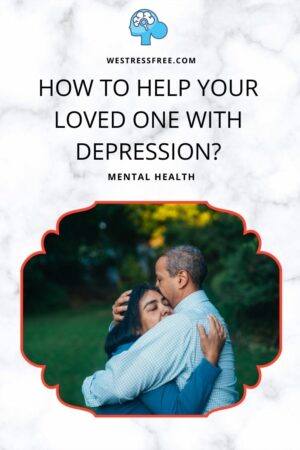

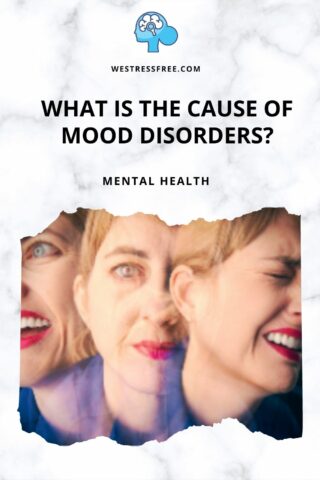
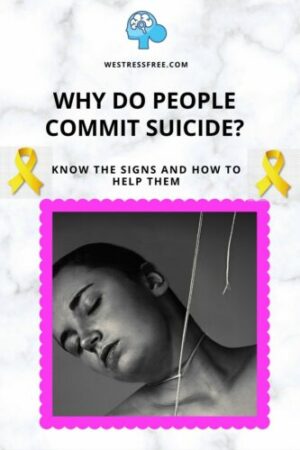


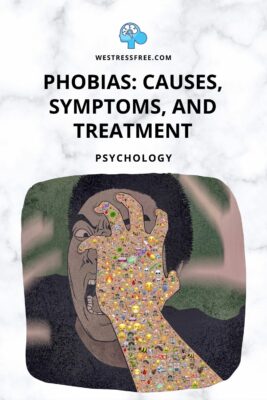

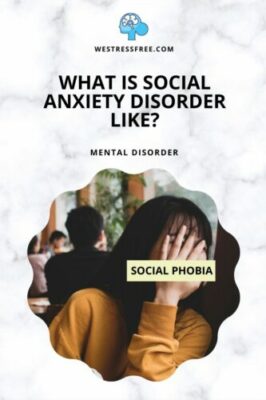
















Hello Ferra,
Thank you so much for your article on mental disorders. This is something that is often mislooked in our society (at least for my country), and I really do appreciate your write up on this topic. A lot of people in my country often think that victims of mental disorders are always purposely ‘acting it out’ to get attention from others which I strongly disagree. This happens when people are not educated about mental health and have a weak knowledge about these issues. Your article will be great at not only helping those in need of answers but also help to educate people around the world on this issue. I really did enjoyed my read on your article, as it has such a clean structure which makes it so easy to read and understand. Your article is also accompanied by a lot of pictures, which helps in making the website more interactive and it’s also a great way to attract your viewers and have a more interactive website. Your attention to detail in every type of the mental disorder that you have mentioned shows that you great knowledge on the topic and have done an intensive research on it as well. All in all, a great article with a great purpose. Keep it up and well done!
Hello,
Thank you for taking time to visit my site, read my post and leave a comment. I really appreciate your kind words in your comment! Glad you found this article useful.
Stay safe,happy and healthy!
Ferra
Mental disorders symptoms list with the causes and treatment is very helpful for caregivers and parents, we really are becoming a very unhealthy world between our physical and mental health disorders affecting our lives in such dramatic negative ways.
Jeff
Hello Jeff,
Thank you for taking time to visit my site, read my post and leave a comment. I really appreciate your kind words in your comment! Glad you found this article useful.
Stay safe,happy and healthy!
Ferra
Hi Ferra,
Thanks for this eye opening article. I am truly amazed at the diversity of mental disorders. The interesting thing is that those who are affected rarely recognize the fact that they have a disorder – or end up being in denial.
The beautiful relaxing piano music was also a very nice touch.
Keep up the good work of providing this really valuable information!
Hello Ceci,
Thank you for taking time to visit my site, read my post and leave a comment. I really appreciate your kind words in your comment!
Glad you found this article useful.
Stay safe,happy and healthy!
Ferra
This is quite a great post that is filled with so much information and a very well enlightenment. I personally found this to be worthwhile and worth reading. Many people have exhibited these traits without them knowing that there is any problem with their mental capacity, however they can get to discover later on. In fact, I have seen people who thinks that’s how they have always been without seeking medical help. This is dangerous and also very bad.
Thanks for this post.
Hello Ella,
Thank you for taking time to visit my site, read my post and leave a comment. I really appreciate your kind words in your comment!
Glad you found this article useful.
Stay safe,happy and healthy!
Ferra